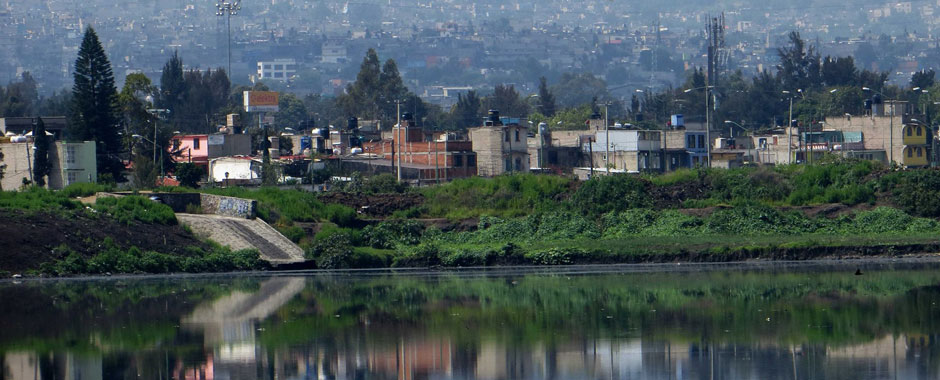The MEGADAPT project aims to reduce vulnerability from the effects of climate change by improving the capacity to manage risks posed by factors such as increased flooding and chronic water scarcity in Mexico City, one of the world’s largest metropolitan areas.
Like other megacities, typically defined as large cities with more than 10 million people, Mexico City faces significant social and institutional challenges to adapting to climate change. It is short of water and slowly sinking. The impacts of climate change, such as heat and drought, further exacerbate problems in the city, leading to further drilling for water, which in turn, increases the rate at which Mexico City sinks. City residents are living in hazardous conditions, often affected by flooding after rainfall events, water scarcity and poor water quality.
The project aims to produce an integrated dynamic model – MEGADAPT – for use in Mexico City, but which could be applied to any complex urban environment across the globe to adapt to the impacts of climate change. MEGADAPT is a decision-making support tool which enables decision-makers to test out different scenarios by altering risk management priorities or the geographic focus of interventions to imagine alternatives to current management.
The project is implemented in close collaboration with the National Autonomous University of Mexico City (UNAM) and local stakeholders. Four case studies of vulnerable regions within Mexico City will illustrate the complex hazards that residents face and outline their response strategies. City-level analyses will capture the institutional context of decision-making and the mandates, intervention strategies, and priorities of city-level agencies and actors. A biophysical model will be developed to simulate the impact that changes to land use or infrastructure could have on the city’s water systems and local climate.
Agent-based modelling, an approach to modelling which simulates how different city actors (the agents) interact with one another and their environment based on the criteria they use to make decisions, will be used to simulate the responses of residents and city-level agencies to different hydroclimatic risks, which, in turn, affect the response of the hydro-climatic system. Different hazard response scenarios will be explored through a geographic information system embedded in a multicriteria decision analysis framework (GIS-MCDA), which will permit and facilitate decision-making concerning how to adapt to changing hydro-climatic conditions.
The project aims to improve the capacity for risk management in Mexico City by supporting the interdisciplinary and cross-cultural training of graduate students affiliated with UNAM and Arizona State University. Stakeholders are also directly involved in the project. In this way, MEGADAPT aims to serve as a model for climate-change adaptation in developing countries.
Visit the Project website for further information or read our blog.
Funding and timescale
This project is funded by the National Science Foundation Coupled Natural-Human Systems program (Grant #1414052) and also received supplementary funding from the Inter-American Institute for Global Change Research. The project began in 2014 and will continue until 2018.
Project partners
Arizona State University (ASU)
National Autonomous University of Mexico City (UNAM)
